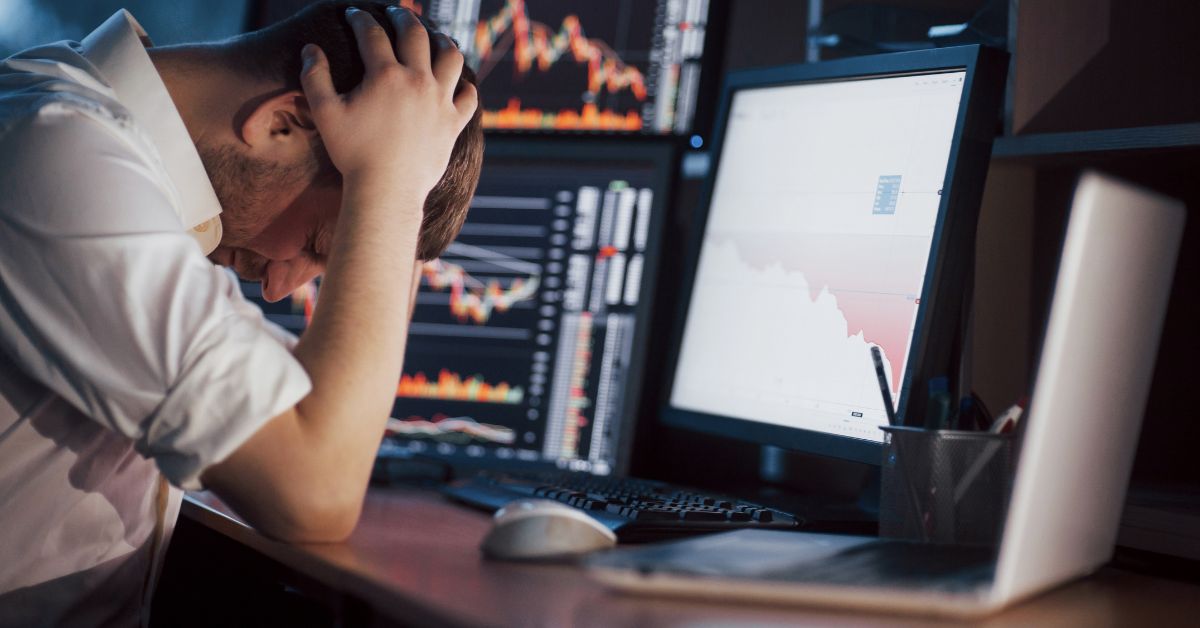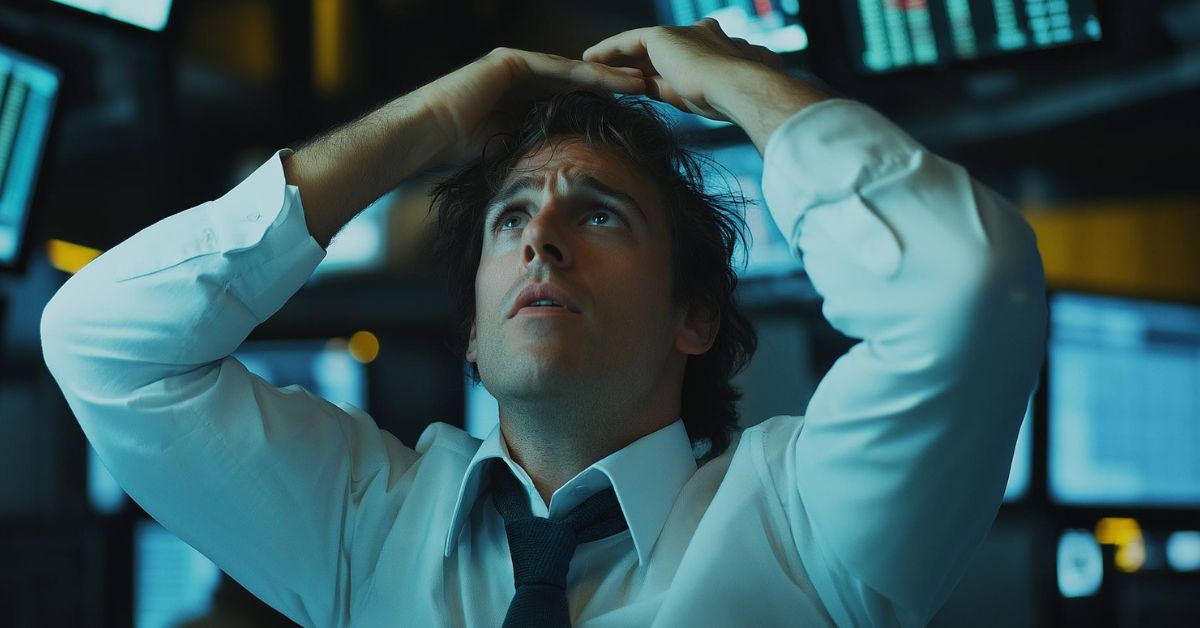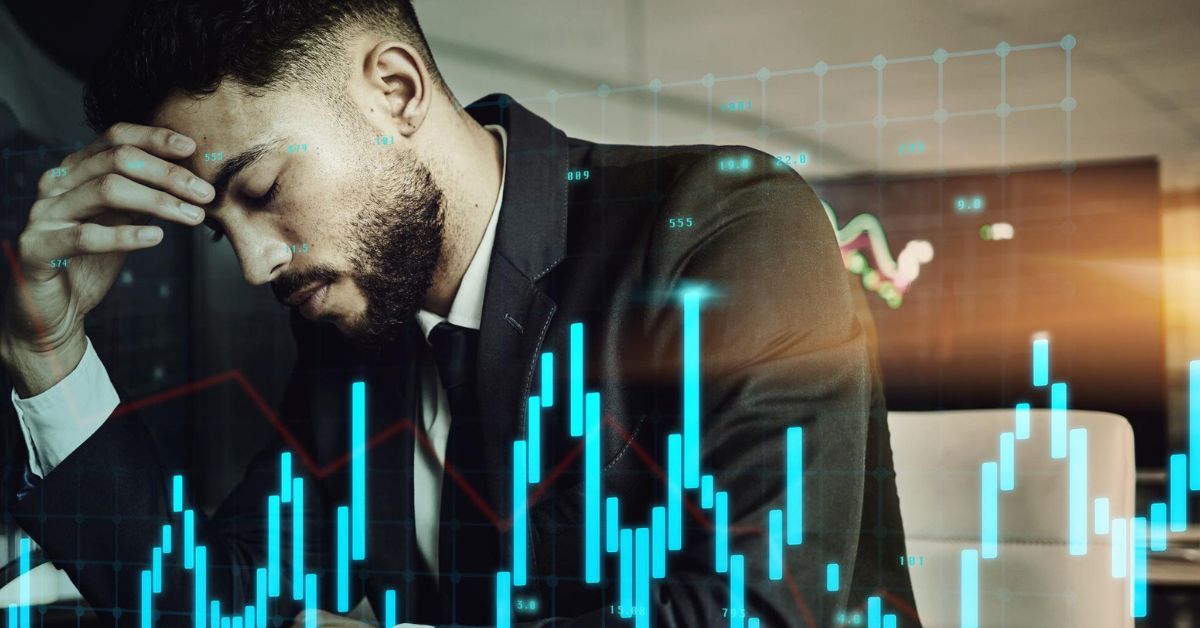The world of trading can be exciting and daunting at the same time. The potential for profit is enticing, but the fear of losing often influences every decision traders make. This fear is a common experience, particularly for those just starting their trading journey.
In this article, we’ll explore the biggest fear in trading and how it impacts traders’ decisions. You can trade more confidently and make better trades if you understand this fear and learn how to overcome it. Prime XBT, a reliable crypto trading platform, offers traders the resources and tools they need to navigate these challenges with confidence.
Whatever your trading skill level, it can help you stay informed and make smarter trading decisions. So, join PrimeXBT today! Use promo code PRIMEOTT to receive a +7% bonus on your deposit.
What is Fear in Trading?

Trading fear is a common experience among traders. It can manifest in various ways and impact your trading performance. Fear often stems from the uncertainty and volatility of the markets. This emotional response can lead to hesitation and poor decision-making.
When fear takes over, it may cause you to doubt your strategies. Doubt can lead to missed opportunities or hasty decisions. It’s essential to recognize how fear affects your trading behavior. By understanding this, you can take steps to manage it effectively.
The first step toward overcoming fear is to acknowledge it. Many traders struggle with fear, regardless of their experience level. Even seasoned traders face moments of anxiety. The key is to address these fears head-on.
What is the Biggest Fear in Trading?
In trading, fear is a powerful force that can shape decisions and outcomes. The fear of losing money stands out as the most significant fear traders face. The fear of missing out, along with making mistakes, can deeply impact a trader’s success.
Fear of Losing Money
The fear of losing money is a trader’s most significant challenge. It can dominate one’s thoughts, causing anxiety and stress. This fear often arises from the market’s unpredictability. The possibility of loss can be overwhelming, leading to hesitation.
When fear of loss is strong, traders may avoid taking necessary risks. This avoidance often results in missed opportunities for profit. Instead of following a well-planned strategy, fear can push traders to act defensively. This defensive approach may prevent you from realizing your trading potential.
Additionally, fear of losing money can lead to premature exits from trades. Even when a trade is going well, the fear of losing can cause you to close it too early. This fear-driven behavior often limits your potential gains and hinders your trading success.
Fear of Making Mistakes
Another significant concern for traders is the fear of making mistakes. This fear often leads to overthinking and second-guessing. Traders worry that a wrong decision could lead to significant losses. The pressure to be perfect can be paralyzing.
Mistakes are an inevitable part of trading. However, the fear of making them can cause traders to freeze. This hesitation can prevent you from executing trades that align with your strategy. In trying to avoid mistakes, traders may miss out on profitable opportunities.
Moreover, the fear of making mistakes can create a cycle of self-doubt. Doubting your decisions can lead to inconsistent trading behavior. This inconsistency often undermines your confidence and success as a trader.
Fear of Missing Out (FOMO)

The fear of missing out (FOMO) is a common issue in trading. It occurs when traders worry they’ll miss a profitable opportunity. This fear often arises when markets are volatile and moving quickly. The pressure to act immediately can lead to impulsive decisions.
FOMO can drive traders to enter trades without proper analysis. Acting on impulse rather than strategy often results in losses. The fear of missing out can also cause traders to chase after trends. Chasing trends without a solid plan is risky and usually unprofitable.
Additionally, FOMO can lead to overtrading. Traders driven by FOMO may take on too many positions, increasing their risk exposure. This behavior often leads to exhaustion and significant losses, making FOMO a dangerous mindset in trading.
What Causes Fear in Trading
Listed below are the reasons why traders feel fear when they trade.
Lack of Experience
Lack of experience creates significant trading fear. New traders often feel uncertain, doubting their strategies and decisions. This uncertainty leads to hesitation and missed opportunities. Without expertise, understanding market trends is difficult, increasing anxiety.
As traders gain more knowledge and practice, their confidence grows. This confidence reduces fear and encourages better decision-making. Building experience over time helps overcome this initial fear, allowing traders to act with greater certainty.
Previous Losses
Previous losses are a major cause of trading fear. Experiencing a significant loss can create a lasting fear of repeating mistakes. This fear often leads to overly cautious behavior, causing traders to miss profitable opportunities.
The memory of past losses can overshadow current decisions, increasing anxiety. To overcome this fear, traders should view losses as learning opportunities. Analyzing past mistakes helps improve strategies and reduces the fear of future losses.
Market Volatility
Market volatility triggers fear in many traders. Rapid price changes create uncertainty, leading to anxiety and stress. Volatile markets often result in unpredictable outcomes, making traders doubt their decisions. This fear can lead to rash decisions or missed opportunities.
Managing fear in volatile markets requires a solid plan and discipline. Sticking to a well-thought-out strategy reduces anxiety and helps traders navigate unpredictable market conditions more confidently.
Psychological Factors
Psychological factors, like perfectionism and risk aversion, amplify trading fear. Perfectionists fear mistakes, leading to overthinking and hesitation. This fear can paralyze decision-making, preventing traders from acting.
Risk-averse traders avoid necessary risks, limiting their success. Addressing these factors is crucial for reducing fear. Shifting focus from perfection to learning helps traders overcome these psychological barriers. Developing a growth mindset will make you more confident and effective.
How to Overcome Trading Fear

Overcoming trading fear is essential for success. Here are the steps you should follow to overcome your trading fears.
Develop a Solid Trading Plan
A solid trading plan is crucial for overcoming fear. It provides a clear direction and reduces uncertainty. Your plan should outline specific entry and exit strategies. A well-structured plan helps you stay focused and avoid impulsive decisions.
Review and adjust your plan regularly based on performance and market conditions. Sticking to your plan keeps fear in check and promotes disciplined trading.
Focus on Risk Management
Effective risk management is vital to reducing trading fear. Set clear stop-loss orders to protect your capital. It limits potential losses and helps manage anxiety.
Determine your risk tolerance and adjust your trades accordingly. A risk management strategy can help you trade more confidently. Proper risk management ensures that the fear of losing money doesn’t dominate your decisions.
Practice Regularly
Regular practice is essential for overcoming trading fear. The more you trade, the more experience you gain. Practice builds confidence and reduces anxiety. Use simulated trading or paper trading to practice strategies without real risk.
These methods allow you to refine your approach and improve decision-making. Experience gained through practice helps mitigate fear and enhances trading skills.
Manage Your Emotions
Managing your emotions is crucial for effective trading. Recognize when fear influences your decisions and take a step back. Pause, breathe, and reassess your strategy calmly. Emotional control prevents rash decisions and maintains discipline.
Develop techniques to stay calm under pressure, such as mindfulness or meditation. Controlling your emotions helps you make rational trading choices.
Commit to Continuous Learning
Continuous learning is vital for overcoming trading fear. Stay updated on market trends and trading techniques. The more knowledge you acquire, the more confident you become. Educate yourself through courses, books, and market analysis.
For personalized guidance, consider our trading psychology coaching available at On Tilt Trading Store. We will help you develop a stronger mindset and manage emotions better. As your understanding grows, fear will have less impact on your trading decisions.
What is the Biggest Risk in Trading?
The most considerable risk in trading is the potential for significant financial loss. Market volatility can cause unexpected price swings, leading to losses. Poor risk management, such as not setting stop-loss orders, can amplify these risks.
Traders also face the risk of emotional decision-making, which can lead to impulsive trades. To mitigate these risks, it’s crucial to have a well-defined trading plan and risk management strategy. Diversifying investments and staying informed about market conditions can also help manage potential losses.
Conclusion
Trading fear is a significant challenge that can impact your success. First, understand your fears, such as missing out, losing money, and making mistakes. Practice regularly, develop a solid trading plan, and manage risks effectively. The control of emotions and continuous learning are also crucial for reducing fear.
Are you tired of losing money due to panic selling, FOMO, overtrading, and bag holding? We recommend the Vestinda trading app. It helps eliminate emotional decision-making through Vestinda’s automated crypto trading strategies. It enhances your trading strategy and supports disciplined trading.



